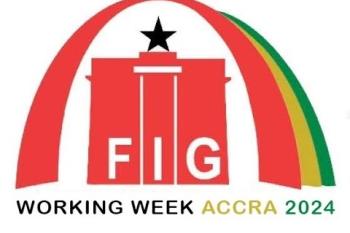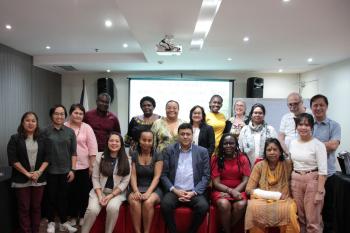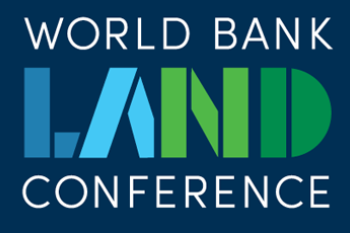
New GLTN knowledge products developed by ANGOC
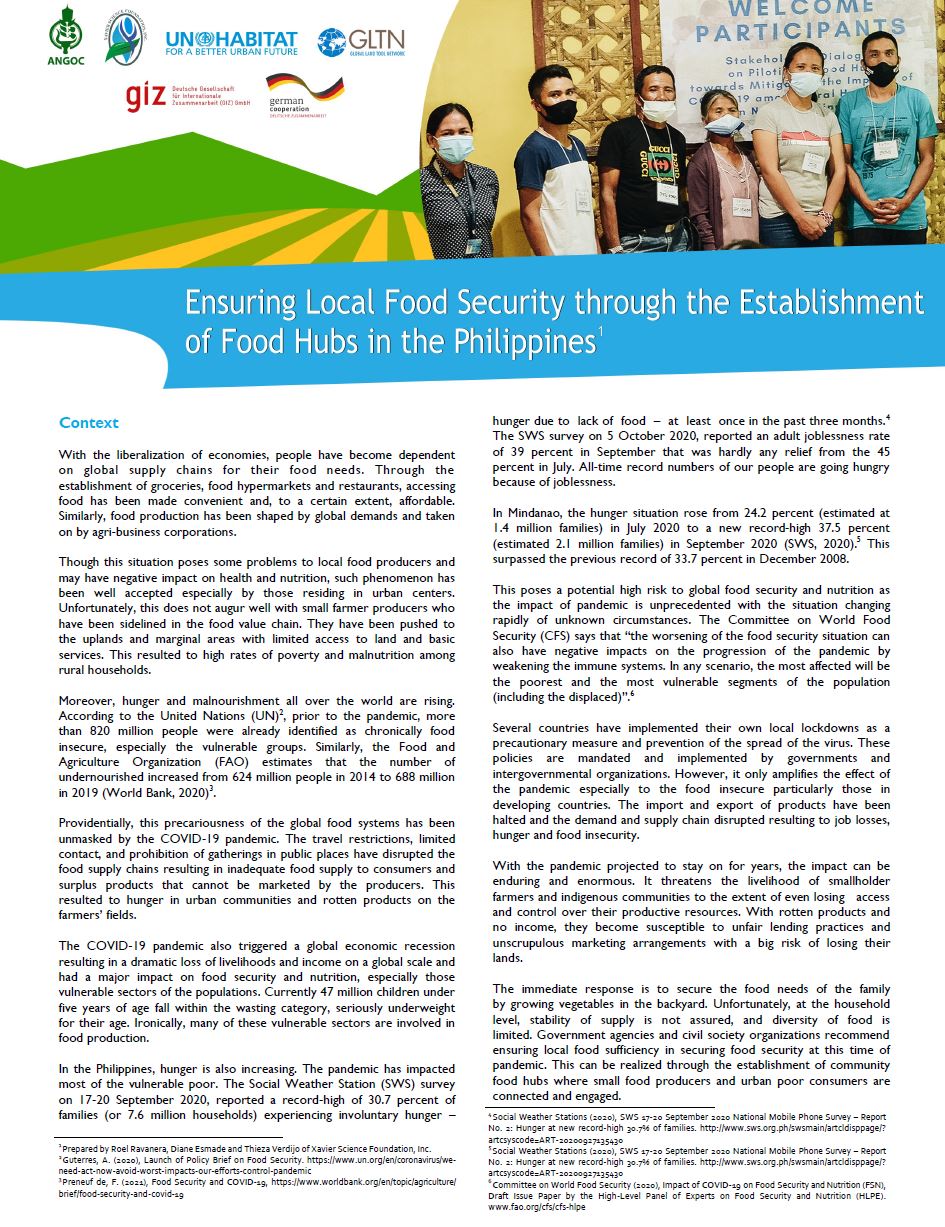 Ensuring local food security through the establishment of food hubs in the Philippines
This brief discusses the establishment of community food hubs where small food producers and urban poor consumers are connected and engaged in order to ensure stability and diversity of food supply particularly against the backdrop of the pandemic.
Ensuring local food security through the establishment of food hubs in the Philippines
This brief discusses the establishment of community food hubs where small food producers and urban poor consumers are connected and engaged in order to ensure stability and diversity of food supply particularly against the backdrop of the pandemic.
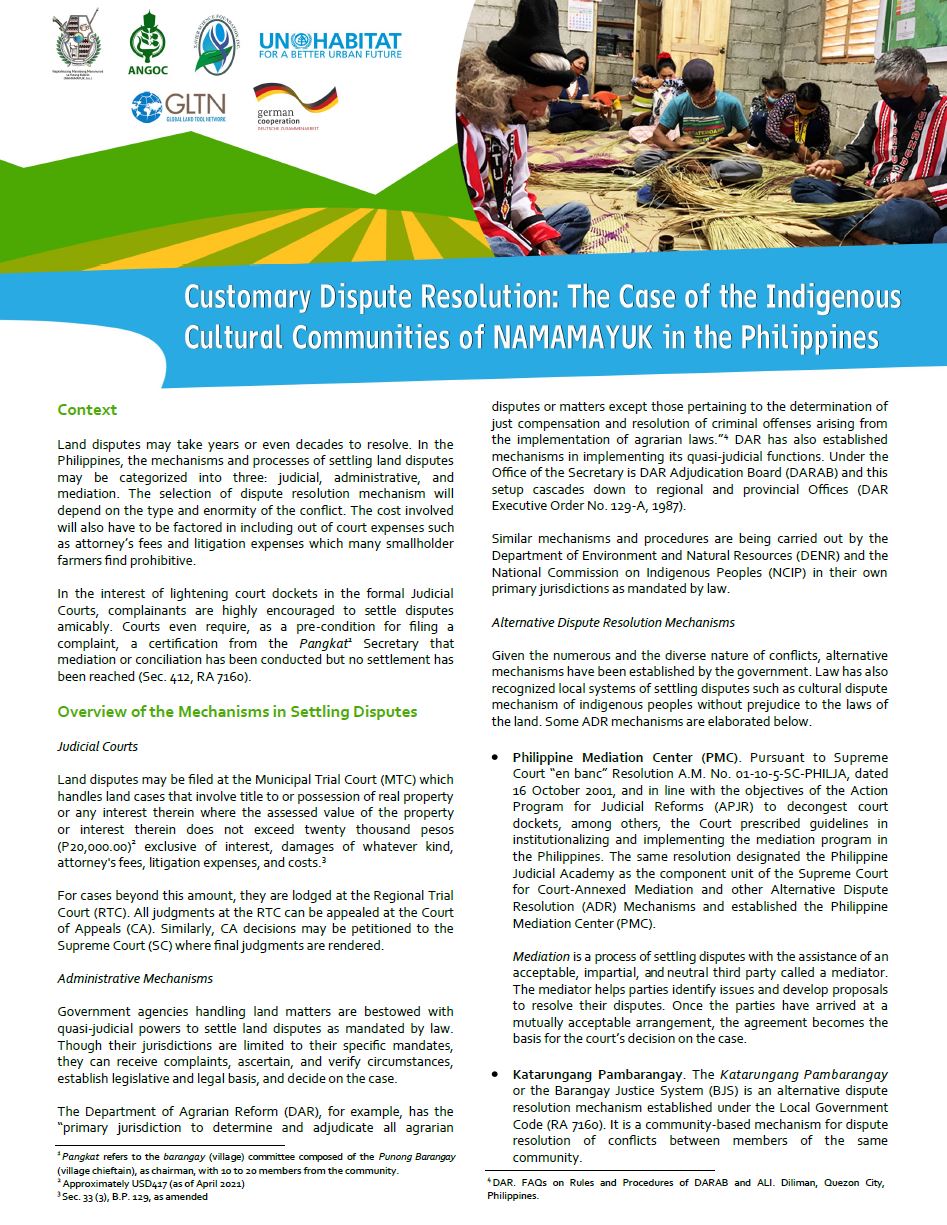 Customary dispute resolution: The case of the indigenous cultural communities of NAMAMAYUK in the Philippines
This brief presents the alternative dispute resolution mechanism of mediation or conciliation as practiced by an indigenous cultural community in the Philippines
Customary dispute resolution: The case of the indigenous cultural communities of NAMAMAYUK in the Philippines
This brief presents the alternative dispute resolution mechanism of mediation or conciliation as practiced by an indigenous cultural community in the Philippines
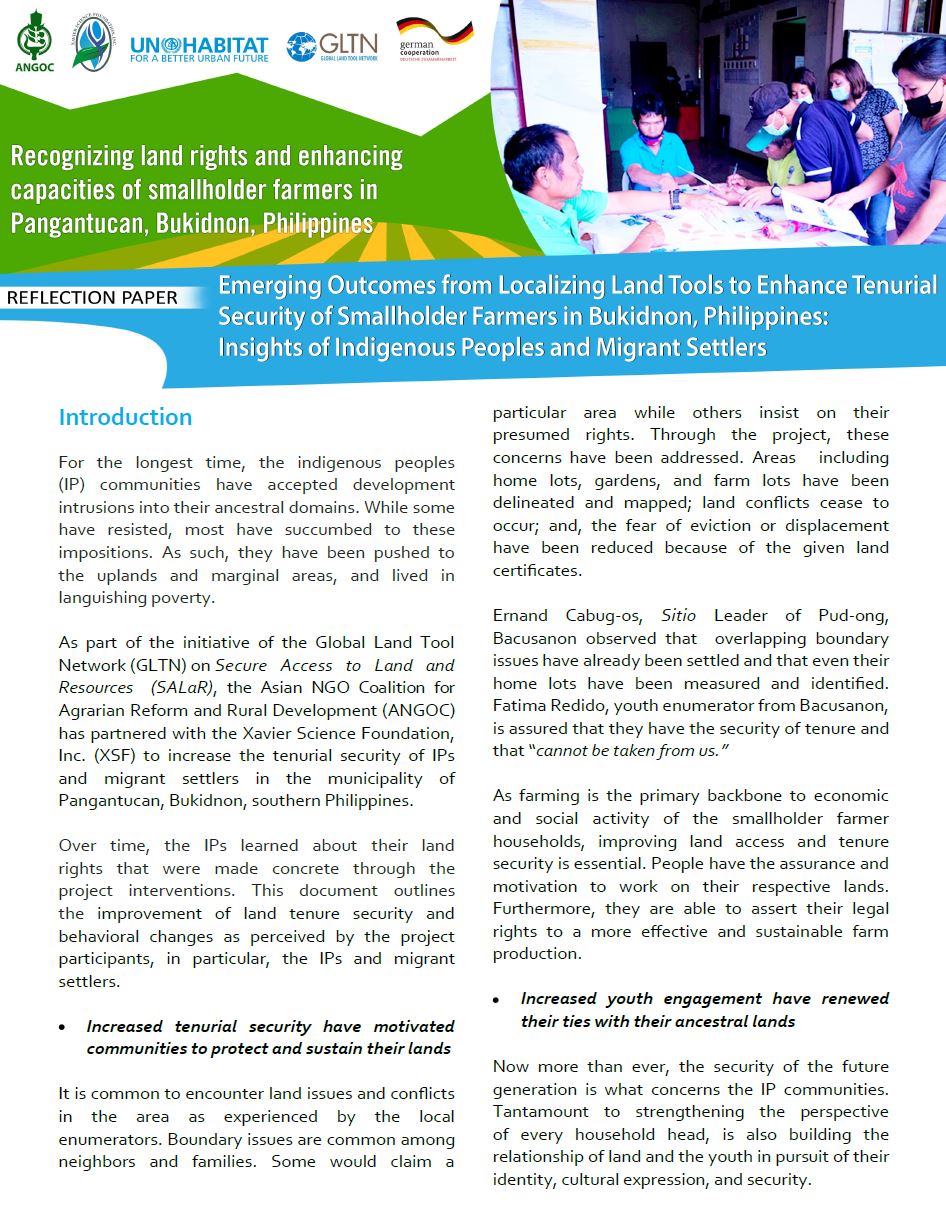 Emerging outcomes from localizing land tools to enhance tenurial security of smallholder farmers in Bukidnon, Philippines: Insights of indigenous peoples and migrant settlers
This brief outlines the improvement of land tenure security and behavioral changes as perceived by the project participants, in particular, the IPs and migrant settlers.
Emerging outcomes from localizing land tools to enhance tenurial security of smallholder farmers in Bukidnon, Philippines: Insights of indigenous peoples and migrant settlers
This brief outlines the improvement of land tenure security and behavioral changes as perceived by the project participants, in particular, the IPs and migrant settlers.
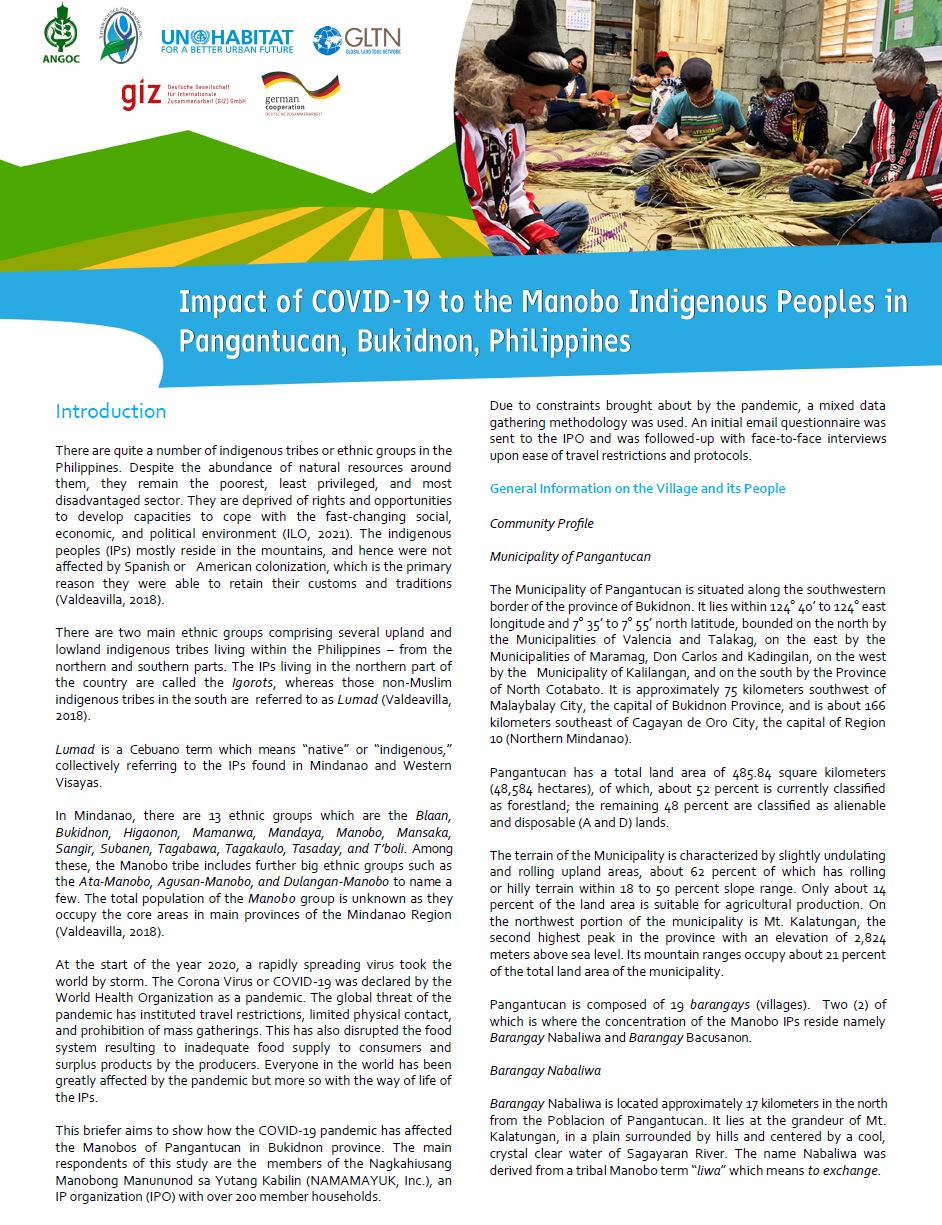 Impact of COVID-19 to the Manobo indigenous peoples in Pangantucan, Bukidnon, Philippines
This brief aims to show how the COVID-19 pandemic has affected the Manobos of Pangantucan in Bukidnon province. The main respondents of this study are the members of the Nagkahiusang Manobong Manununod sa Yutang Kabilin (NAMAMAYUK, Inc.), an IP organization (IPO) with over 200 member households. Due to constraints brought about by the pandemic, a mixed data gathering methodology was used. An initial email questionnaire was sent to the IPO and was followed-up with face-to-face interviews upon ease of travel restrictions and protocols.
Impact of COVID-19 to the Manobo indigenous peoples in Pangantucan, Bukidnon, Philippines
This brief aims to show how the COVID-19 pandemic has affected the Manobos of Pangantucan in Bukidnon province. The main respondents of this study are the members of the Nagkahiusang Manobong Manununod sa Yutang Kabilin (NAMAMAYUK, Inc.), an IP organization (IPO) with over 200 member households. Due to constraints brought about by the pandemic, a mixed data gathering methodology was used. An initial email questionnaire was sent to the IPO and was followed-up with face-to-face interviews upon ease of travel restrictions and protocols.
